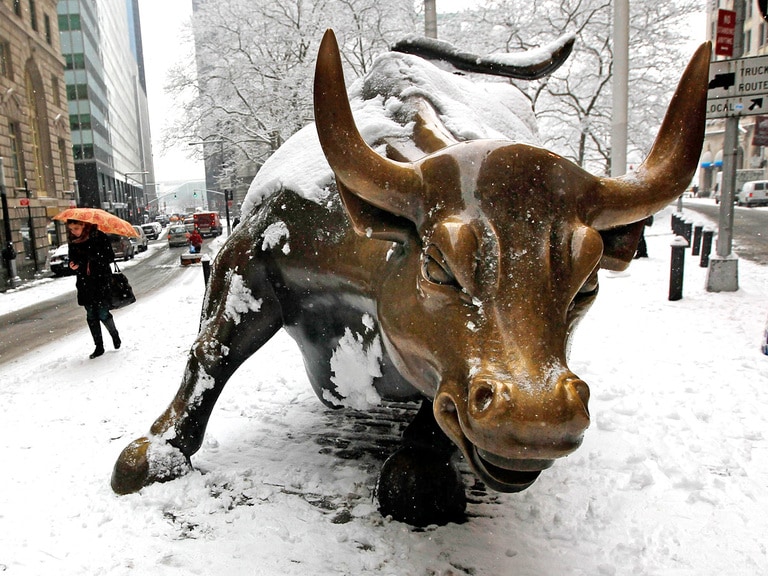The Vanguard Small-Cap Growth ETF (NYSEARCA: VBK) could be an interesting option for any investor as it has great potential. Although focused upon small-cap stocks, its share price has increased by 46% over the last 12 months. There are multiple reasons why a small-cap ETF should be considered as a potential investment, and in particular, the Vanguard Small-Cap Growth ETF, which is why we will explore how this particular fund can be an asset to your portfolio.
This article was originally published on MyWallSt — Investing Is for Everyone. We Show You How to Succeed.
What is it all about?
Small-cap companies tend to have a valuation of under $2 billion and whilst they generally have higher return potential than mid and large-cap companies in the short-term, the risk is higher for investors. For the Vanguard Small-Cap Growth ETF, its assets under management total around $16 billion and it contains around 600 companies, reducing the single-stock risk significantly. It has a dividend yield of around 0.4% and an expense ratio of around 0.7%.
Every index has certain criteria that it focuses upon, for example, the Ark Innovation ETF only includes companies that it deems as innovative and groundbreaking in its industry. In a similar manner The Vanguard Small-Cap Growth ETF has a number of criteria that it focuses upon:
- Seeks to track the performance of the CRSP US Small Cap Growth Index.
- Small-cap growth equity.
- Low expenses minimize net tracking error.
In addition, it employs a passively managed full-replication strategy, and the fund remains fully invested. Although this is not nearly as exciting as the Ark Innovation Fund, it has a strong investment strategy tracking the performance of small-cap businesses.
This ETF has grown 42% in the last 12 months and almost 200% in the last 5 years. With a large, yet carefully selected, stock list, it aims to track the growth of small companies in the U.S. this fund is a steady and stable investment opportunity.
Diversification
Diversification within your portfolio is extremely important as it can minimize risk, particularly in the event of a pandemic induced recession. ETFs in general offer diversification in one simple package as a wide variety of industries are usually represented. Small-cap ETFs are no different and, as such, they are very transparent with many disclosing their holdings on a daily basis.
This ETF has a heavy focus on tech start-ups, with around one-quarter of the portfolio made up of Healthcare stocks, while a further 22% is made up of tech companies. This might seem like a lot, but when each company does not even amount to 1% of its holdings, the Vanguard Small-Cap Growth ETF has plenty of diversification.
This fund does contain some better-known companies such as Enphase Energy, Zendesk, and MongoDB, as well as some lesser-known businesses. By choosing an ETF such as this one, investors can put money into a wide variety of growth-focused companies, without as much of the risk that investing in a single small-cap firm would hold.
Small-cap versus large-cap
Whilst large-cap indexes have more consistent growth overall, historically, small-cap indexes tend to do better when coming out of a recession in both 1-year and 3-year annualized returns. With the U.S. and many other countries entering a COVID-induced recession in 2020, small-cap ETFs or indexes could be a great option for any investor right now.
For an ETF in particular, expense ratios are a factor that becomes very important as cheaper funds will often outperform more expensive ones over the long-term. Large-cap indexes will grow and they will have much less risk involved, but growth will often be slower on an annualized basis than that of small-cap indexes. Thus a high risk, high reward, small-cap ETF could be an interesting option to add to your portfolio.
One thing an investor should do is take the return potential from a small-cap ETF such as the Vanguard Small-Cap Growth fund and then add it to a portfolio that already has other mid and large-cap companies or ETF’s. The instability and risks of small-cap investments are offset by the stability and strength of mid or large-cap investments.
Overall, small-cap ETFs, and in particular, the Vanguard Small-Cap Growth ETF, could be a great option for any potential investor who is looking to add an extra layer of diversification but doesn’t want the risk associated with a single small-cap stock investment.
MyWallSt makes it easy for you to pick winning stocks. Start your free trial with us today— it's the best investment you'll ever make.
Disclaimer Past performance is not a reliable indicator of future results.
CMC Markets is an execution-only service provider. The material (whether or not it states any opinions) is for general information purposes only, and does not take into account your personal circumstances or objectives. Nothing in this material is (or should be considered to be) financial, investment or other advice on which reliance should be placed. No opinion given in the material constitutes a recommendation by CMC Markets or the author that any particular investment, security, transaction or investment strategy is suitable for any specific person.
The material has not been prepared in accordance with legal requirements designed to promote the independence of investment research. Although we are not specifically prevented from dealing before providing this material, we do not seek to take advantage of the material prior to its dissemination.
CMC Markets does not endorse or offer opinion on the trading strategies used by the author. Their trading strategies do not guarantee any return and CMC Markets shall not be held responsible for any loss that you may incur, either directly or indirectly, arising from any investment based on any information contained herein.
*Tax treatment depends on individual circumstances and can change or may differ in a jurisdiction other than the UK.
Continue reading for FREE
- Includes free newsletter updates, unsubscribe anytime. Privacy policy






